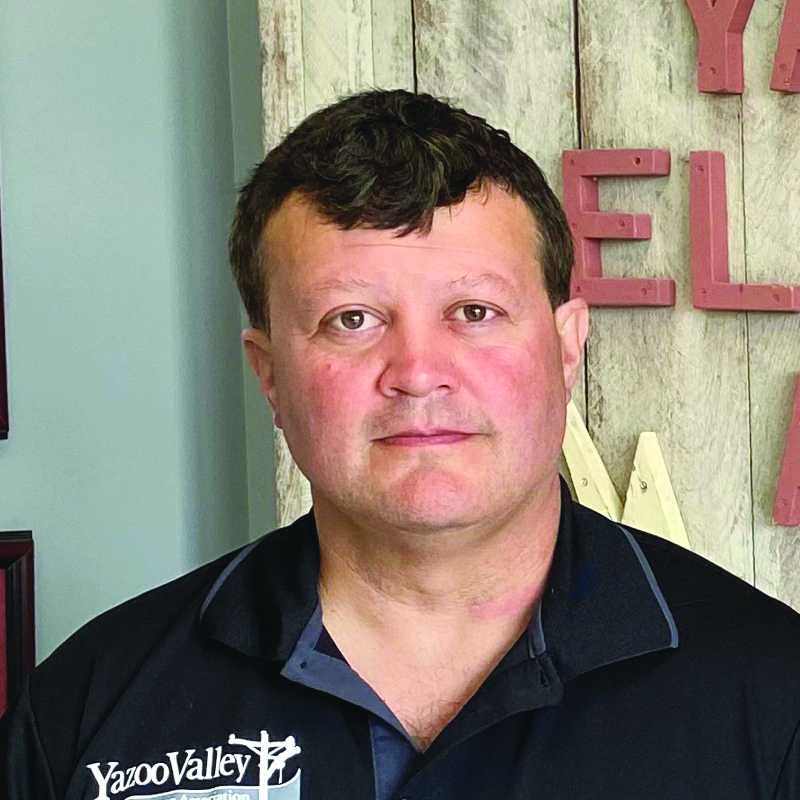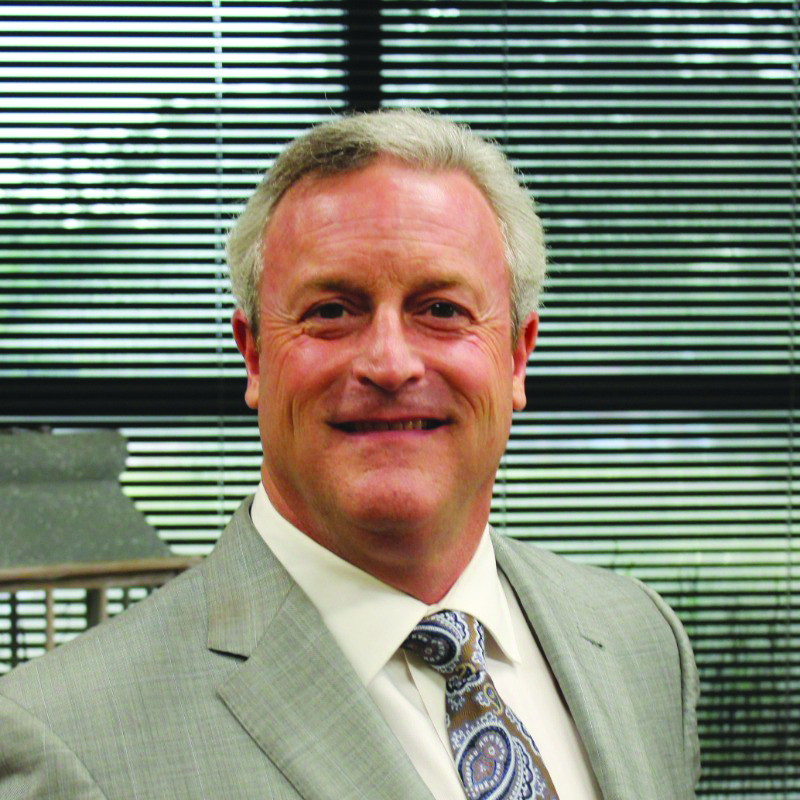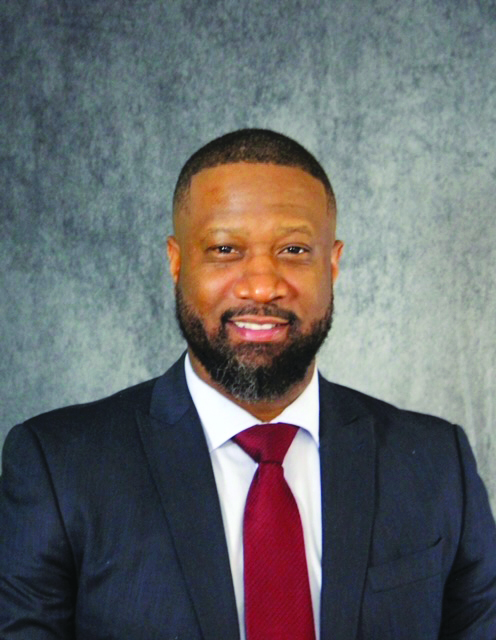Entities Providing Top-Notch Service
Across the Mississippi Delta, several electrical associations play crucial roles in providing electricity to rural communities. These associations serve areas bringing power to small towns and communities as well as farmers across the region.
Delta Electric Power Association has been serving Leflore, Montgomery, Sunflower, Tallahatchie, Washington and Webster and several others since it began in May of 1938. Harold Pittman was promoted to General Manager of Delta Electric and Chief Executive Officer of Delta Fiber LLC when David O’Bryan retired this past year.
“The biggest project we are currently working on is a power brick expansion,” says Pittman. “We are about halfway finished with our total build out. We started on the eastern side of our system in the hill area and then we’ve come all the way to just west of Greenwood and then we’ll go all the way to the to the river. We serve the area just north of Greenville there and then all the way up into North Bolivar County.”
Delta Electric continues to build out its fiber system as well.
“We’ll have around 5,000 miles of fiber installed when we get done, so it’s a pretty good project for us,” he says. “And, we have our normal maintenance and growth type items. I know we have a substation we’ve got to build in the next few years to accommodate a lot of the agricultural growth. Most of our growth these days, in the Delta Counties, is in agriculture.”
Wind and solar farms are popping up in the Delta and Delta Electric is keeping a close eye on them.
“There’s several that are on the PSC docket right now that are in our area, so we’ll just have to kind of wait and see what develops out of those,” says Pittman.
There’s also the continual evolution of artificial intelligence and putting it to work to benefit customers.
“I keep waiting for the AI stuff to penetrate our part of the world,” he says. “A lot of the things you can do with the apparatus now is pretty neat. Some of what’s called ‘self-healing’ type systems where if you lose power from one way, the system will make a decision whether it can back feed from another way. It’s kind of an autonomous setup. I know those things are out there, and we’ve looked at some of those, just haven’t jumped into that game just yet. It lowers the outage times in affected areas. That’s going to be the next biggest thing that I see coming down the pike for sure.”
The Delta (at press time) has been a bit lucky with storms this year.
“We have had a pretty normal weather season this year so far,” says Pittman. “Just regular storms. Nothing that had us out for a week at a time. I don’t wish tornados or powerful wind storms on anybody else, but I’d rather be sending you help than asking for help.”

Jason Patterson at Yazoo Valley Electric has been working on getting new meters to customers, but the rough and rural terrain hasn’t been very friendly for progress.
“We cover the rural parts of Yazoo County,” says Patterson. “We cover some of Warren County, Holmes County, Sharky, Issaquena, and Humphreys. One of the things we’ve been focused on is upgrading our meters to more modern technology. That’s going to benefit us, give us more information so we can respond to outages faster and have more specific information on where problems are, when they occur. A lot of our area, especially in Yazoo County and the Warren County areas, is in areas with lots of hills and trees. We’ve experienced a few obstacles with getting some of the equipment where it can talk to each other. That’s something we’re slowly but surely overcoming. The meters will give us more access to more information. For example, when a meter goes out and we have power outages caused by storms, we’ll be able to identify more accurately where the problems are.”
Yazoo Valley Electric serves 10,000 meters both residential and business. Patterson and his crews are constantly maintaining and renovating.
“We’re spending a lot of time improving our right-of-ways and having our system as good as it can be so that we have fewer service interruptions caused by weather,” says Patterson.
Patterson notes they have dealt with more maintenance issues due to last year’s drought that wreaked havoc on Delta area trees.
“That is one of the biggest obstacles facing us and I bet is probably the same for electric associations across the state right now,” he says. “Following drought we had last year, we have got just an incredible number of dead pine trees along the right-of-ways of our system. Those trees are very likely to fall and, unfortunately, a lot of times fall on our lines. It’s a big problem. It’s a problem on a scale like we’ve never seen before, and so we’re being very proactive and getting rid of as many of them as we can. We’re talking about a major undertaking that is going to prove to be very expensive and very time-consuming.”

Entergy Corporation has been busy on all fronts to assist customers across the Mississippi Delta. Candace Coleman, Senior Communications Specialist, Entergy Mississippi explains some of the projects.
“We recently completed the rebuild of our substation in the town of Winona and officially removed the mobile substation that had been heroically powering the community since the March 2023 tornadoes,” says Coleman.
And with summer temperatures in full force putting a strain on customers’ wallets, Entergy launched a new Bill Toolkit site to help customers manage their summer bills.
“Cooling costs make up more than fifty-five percent of an average customer’s electric bill,” she says. “We’re making sure customers know it’s important to take steps to conserve energy to lower their electric bills when temperatures start to rise.”
The Bill Toolkit site includes comprehensive information on over two dozen programs or resources across our region available to help customers looking for bill management and assistance options. Programs or resources referenced on the site include, energy efficiency programs and rebates, deferred payment arrangements and payment extension options and financial assistance offerings like The Power to Care, LIHEAP and Single Stop.
“Throughout our 100-year history, we have invested in generation plants that allow us to produce power as efficiently as possible with the most advanced technology available at the time,” says Coleman. “As power generation technology has evolved, we have built, purchased and retired plants as necessary to meet demand for ever cleaner solutions while keeping costs low. With that in mind, the current plans are to retire the Gerald Andrus plant in 2028.”
Amazon Web Services recently announced it will locate two data center campuses in Mississippi, which will drive significant power grid infrastructure improvements across Entergy’s service area, while also helping maintain affordable rates for our customers. The investments related to the AWS project will bring benefits to counties near generation investments, with a focus on the Mississippi Delta and northwest Mississippi. New and efficient natural gas power generation will align with the retirement of older, less-efficient power generation.

The Tallahatchie Valley Electric Power Association serves parts of the Delta region, including Tallahatchie and Quitman counties. TVEPA has been providing electricity to its members for nearly a century. Brad Robison, CEO of TVEPA and TVIfiber notes the electrical association continually moves forward to help provide top notch services to its customers for eighty-five years.
“We continue to invest in electric infrastructure and pursue technological advances that allow us to meet the continued demand for electric power, to support our members and economic development activities for our region,” says Robison. “Environmental sustainability is an important part of life for the Mississippi Delta area. Maintaining our legacy requires that we provide cost effective electricity from renewable sources, and we are proud to facilitate, locally produced solar energy that will continue to power generations to come.”
TVIfiber (TVEPA’s broadband subsidiary) has completed construction of its entire service territory.
“We are very proud that this multimillion-dollar investment has brought affordable and reliable gigabit speed internet to some of the most rural parts of our state,” says Robison. “The project has unleashed opportunities for our members and communities that will continue to propel our region forward.”

Twin County Power Association provides electric services in seven Delta counties including Washington, Humphreys, Sharkey, Issaquena, Warren, Sunflower and Leflore. Twin County is headquartered in Hollandale with offices in Belzoni, Rolling Fork, and Greenville serving Members in seven counties. And, they have new leadership. Leslie Holloway was selected by the Twin County board as the new General Manager.
Holloway comes with extensive knowledge of the electric utility industry, including more than twenty-five years of experience working with cooperatives and seventeen years in senior management.
Her managerial experience includes expertise in advanced metering infrastructure, outage management optimization, beneficial electrification, technology advancements, renewable energy, financial planning, contract negotiations, strategic planning, key performance indicator measures, and enhancing cooperative services for members.
“I am honored to be named as the General Manager for Twin County and eager to invest in the communities that serve our members,” says Holloway. “I am confident in the outstanding skills and dedication of the employees and Board of Directors. I am fortunate to be an instrumental part of this exceptional team and look forward to building on the cooperative’s strong foundation.”
The Public Service Commission of Yazoo City provides power for city residents and businesses and a few just outside of town. Established in 1903, the commission continues to help customers in every way possible.

“The first and the biggest project we are working on is increased reliability,” says CEO and General Manager, Dennis McFee. “That’s something that we have an immediate need to fix and is on our priority list. And that comes along with metering technologies. We’re looking at some EV opportunities and we are trying to be a pioneer in that space.”
McFee is searching for grant funding to get started in the EV arena.
“If we can’t secure grant funding, we’re looking at ways to take it on ourselves,” he says. “Looking at costs, having some studies done to see what it would take and where these chargers would be located, what kind of charger would need to be in.”
McFee says he is also looking into building a new substation.
“That would also aid in increased reliability,” he says. “Right now, we are only being fed from one end of town and if there’s issues there, the entire town suffers. We have a site secured and we’re having some cost survey studies done to see how soon and when we can get this done.”

Chris McClain, who co-owns Indianola Electric with his sister Vanessa Harris, continues to help farmers with ag-related electrical needs across the Delta.
“We have been working periodically on grain bins and doing a lot of well motors in-house,” he says. “We are also doing some field work, swapping motors out, some generators for center pivots, and going ahead and doing pre-work for some cotton gins for this fall.”
Working in the fields and on site with cotton gins, McClain is a slave to Mother Nature just as the farmers are.
“Right now, we’re dodging the weather some days,” he says. “When it rains we shift our gears and do some inside work that we have lined up until the weather will cooperate so we can get back to the farms.”

Brian Robinson, at Robinson Electric in Cleveland, has his hands full with government-backed projects and helping train the next generation of workers.
“We’re transitioning out of a lot of (government) ESSR projects and we’re coming on the back side of those, finishing up a ton of them this summer,” says Robinson. “We’ve got a few that will take us into next year. We are also launching ourselves off into some ARPA projects (American Rescue Plan Act,) the big infrastructure bill, which is all the water, wastewater municipal projects for small, rural and large Mississippi towns. We have been working in DeSoto County and Warren County. We’re working all across the state on ARPA projects which are funded by the federal government to improve our water and wastewater systems.”
Robinson is continuing to see lighting project upgrades with buildings being converted to LED.
“We’re actually retrofitting all of Cleveland School District right now,” he says. “Then we’re going to be retrofitting all of the Aberdeen School District. We’re also in the process of rehabilitating or rehabbing sports fields for Cleveland. We’re in the generation now where sports lighting is all driven by LED as well.”
Robinson bought the former Bolivar Commercial building and has converted it to workforce training facility.
“We’ve added an additional seven or eight young guys to our staff,” he says. “We still feel very, very optimistic about the new workforce, about the Gen Zs, if you will. And we feel like that they’re more responsive than any of the previous generations that we’ve had. So, these last two or three years now, we’ve had a very, very successful recruiting season with new generational tradesmen. We are meeting with state stakeholders, Accelerate South and different stakeholders throughout the state to implement a full service kind of electrical apprenticeship training there. We’re pushing that and wanting to use that training center as an incubator for training and development.”
Robinson Electric has also been majorly engaged with ongoing projects at the Mississippi State Penitentiary in Parchman.
“We’re doing wastewater water projects and renovating the execution chamber,” he says.
“We’re remodeling Parchman top to bottom, the state is spending about $15-$20 million on that building.”

